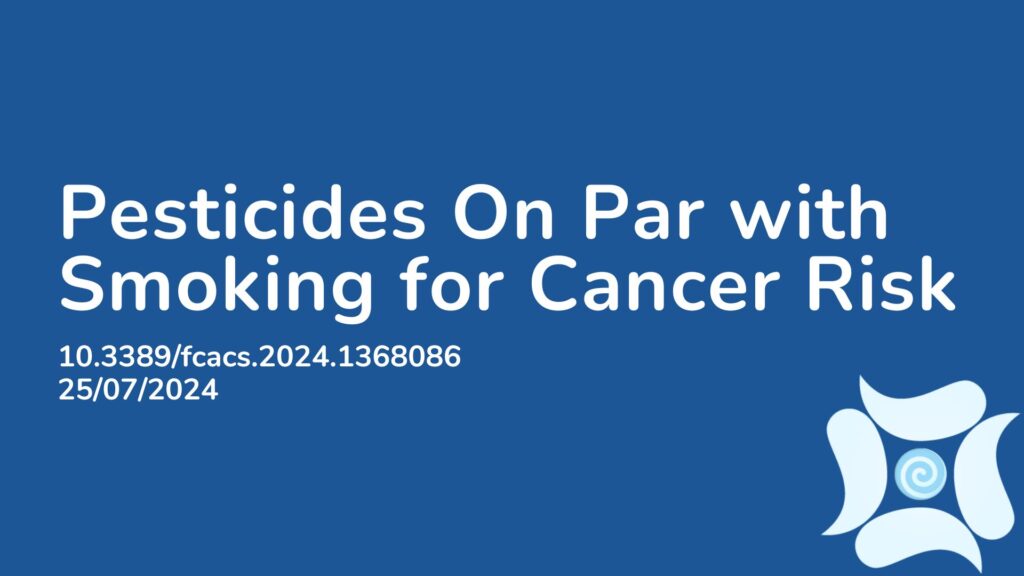Summary:
Pesticides are chemicals used to eliminate pests that threaten agriculture, significantly enhancing crop yields and food security. Non-pesticide organic farms often produce 15%-50% less than conventional farms. In the U.S., herbicides were used in 96% of corn crops in 2021. However, pesticides raise public health concerns, being linked to cancers like colorectal, lung, and pancreatic. Glyphosate, a common herbicide, has correlations with lymphoma and is classified as a probable carcinogen. This study assesses cancer risk from pesticides, considering confounders such as socioeconomic status, smoking rates, and agricultural land use. The findings suggest pesticide use impact on cancer incidence may be comparable to smoking, with high agricultural productivity regions showing the greatest cancer risk increase.
Abstract:
Pesticides are an essential feature of modern-day agriculture that adds to the list of factors that increase cancer risk. Our study aims to comprehensively evaluate this relationship through a population-based approach that considers confounding variables such as county-specific rates of smoking, socioeconomic vulnerability, and agricultural land. We achieved our goal with the implementation of latent-class pesticide use patterns, which were further modeled among covariates to evaluate their associations with cancer risk. Our findings demonstrated an association between pesticide use and increased incidence of leukemia; non-Hodgkin’s lymphoma; bladder, colon, lung, and pancreatic cancer; and all cancers combined that are comparable to smoking for some cancer types. Through our comprehensive analysis and unique approach, our study emphasizes the importance of a holistic assessment of the risks of pesticide use for communities, which may be used to impact future policies regarding pesticides.
Article Publication Date: 25/07/2024
DOI: 10.3389/fcacs.2024.1368086



